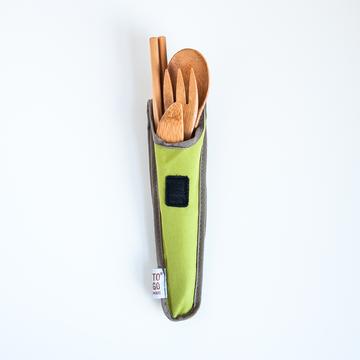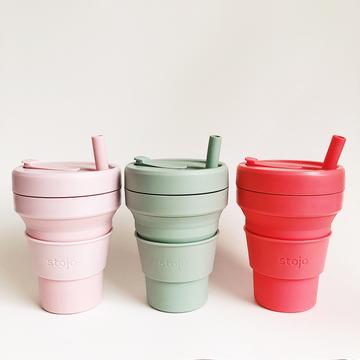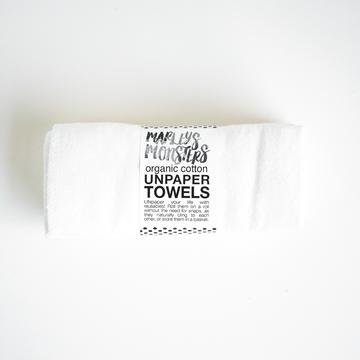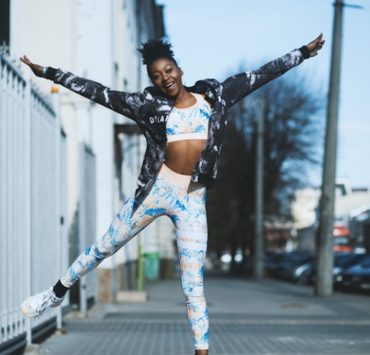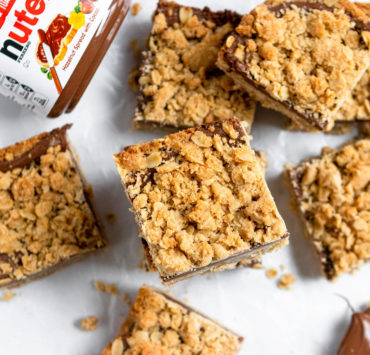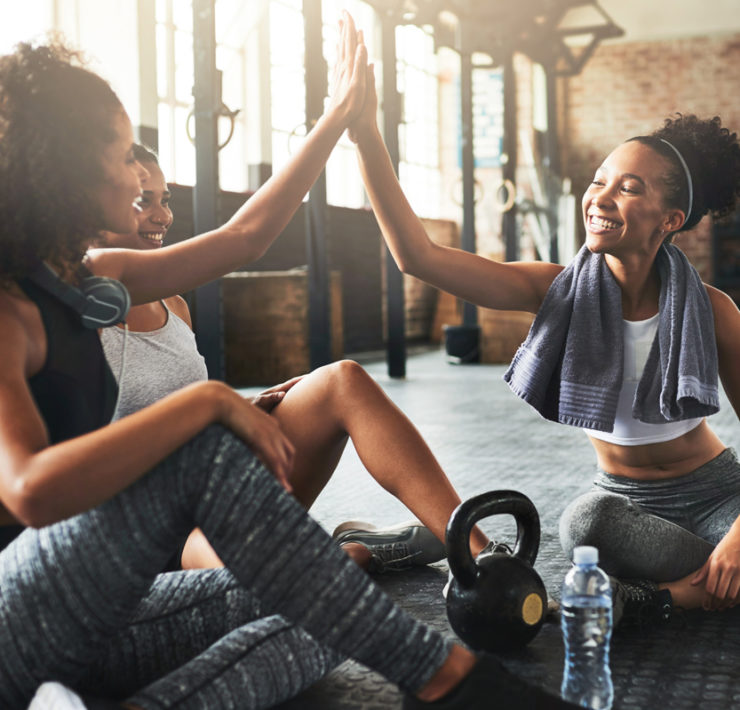Top 25 Zero Waste Swaps for a More Sustainable Lifestyle: Simply Zero
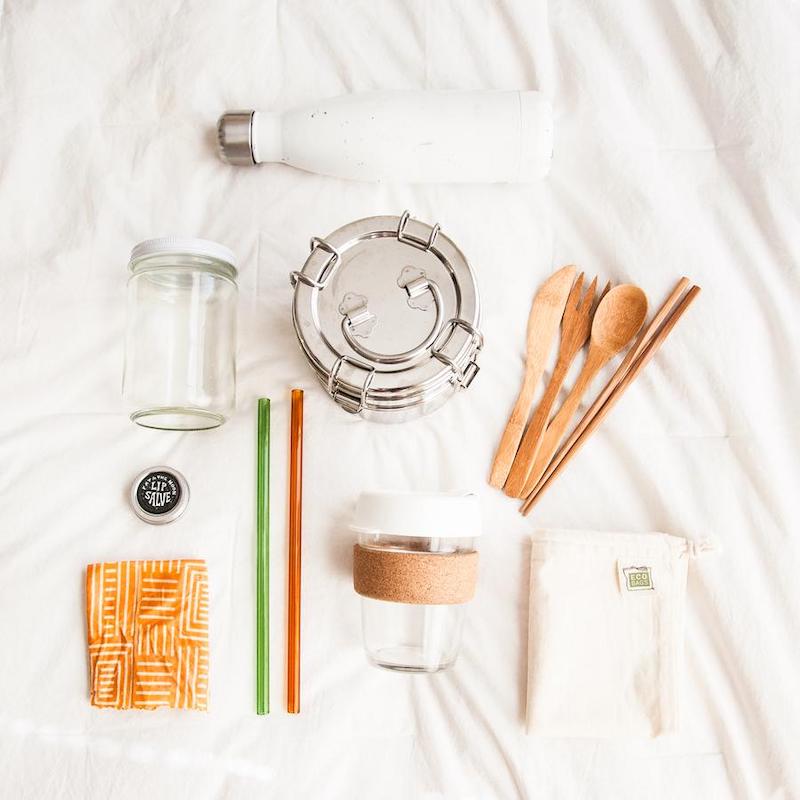
Meriden McGraw is the co-founder of Quidwell where she works…
My friend sent me a meme today. It said, “Climate Change needs to hire Corona Virus’s publicist.” We laughed because it’s true.
Ever heard of Earth Overshoot Day? I hadn’t either. It’s an initiative of an international research organization, Global Footprint Network, that uses data (find it here) to calculate the exact day when humans have consumed all of the resources the Earth can sustainability produce for the coming year. In 2017 it was August 2nd. This year, the prediction is May 22nd.
We’re consuming 2.4 Earths a year.
Beyond overconsumption, the systems that we’ve created for trash and recycling are less than ideal. Landfills are toxic, trash is polluting our oceans, and much of our recycling, no longer outsourced to China, is now sitting in landfills.
Rachel Felous, founder and CEO of Simply Zero, believes we can change this reality through the choices we make and the dollars we spend.
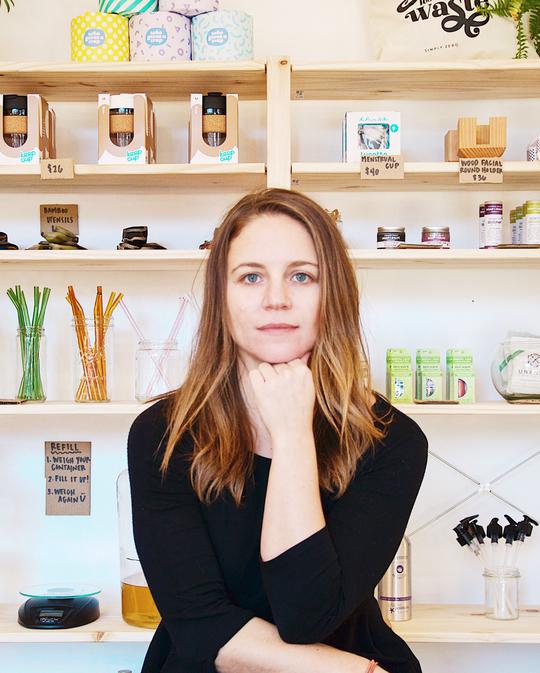
“We’re taught from a young age to “throw our trash away”, but less frequently taught about what that really means — where away really is — and the implications of our out-of-site, out-of-mind attitudes. Unfortunately, our waste is everywhere. It’s in landfills, our environment, the air, the soil, our lakes, rivers and oceans, throughout the communities we call home, and even our bodies. So how can we take responsibility for our waste as individuals? That’s where the zero waste lifestyle comes in.”
The exact definition of Zero Waste varies widely, but the common denominator in all definitions I’ve read is that it’s a movement focused on waste prevention. Instead of taking resources from the earth and then disposing of them, Zero Wasters reduce what they consume, reuse as much as possible, send a little to be recycled, and compost the rest.
I met Rachel in late December at the end of a stint she did at MORTAR, using the space as a pop-up during the holiday season.
Rachel is an activist and a storyteller driven by the desire to establish Cincinnati as a hub for sustainability and zero waste initiatives.
She’s intelligent. She holds degrees in Business and Environmental Science from the University of Southern California and a Master of Conservation from University College London. She’s established in the field. Her work has been featured by Marie Kondo and National Geographic and she’s been recognized with a Leader in Sustainability award from the City of Cincinnati.
When we met we talked for about thirty minutes. I bought some soap from her, and I haven’t stopped thinking about our conversation since.
Rachel told me the way to living a Zero Waste Lifestyle as an individual is by following the principles set forth in what are called the 5R’s: refuse, reduce, reuse, recycle, and rot. The information below is paraphrased from an article Rachel wrote on her own blog called, “The Beginner’s Guide to Zero Waste.”
- Refuse: Just say no. We don’t need more things.
- Reduce: Channel your inner Marie Kondo. Pare down current belongings and don’t collect more.
- Reuse: See below.
- Recycle: Learn more about Rachel’s recycling tips here.
- Rot: Rotting = Composting (or the recycling of organic materials). Food waste makes up about one-third of all household waste. Get yourself a compost bin.
In our household we rot, recycle, reduce, and refuse pretty well. But what really had me thinking after my conversation with Rachel was how I could reuse better.
The average single-use item is used for thirty seconds or less before being thrown in the trash.
Yep, read that again, 30 seconds.
And, friends, I am guilty.
Molly and I work and live out of coffee shops, and I don’t bring a reusable mug. I’m pretty good at packing a water bottle, but I’m constantly grabbing plastic utensils while dining out. We use ziplock bags and paper towels much more than I’d like to admit and, while I’m getting better, I’m constantly forgetting my reusable grocery bags.
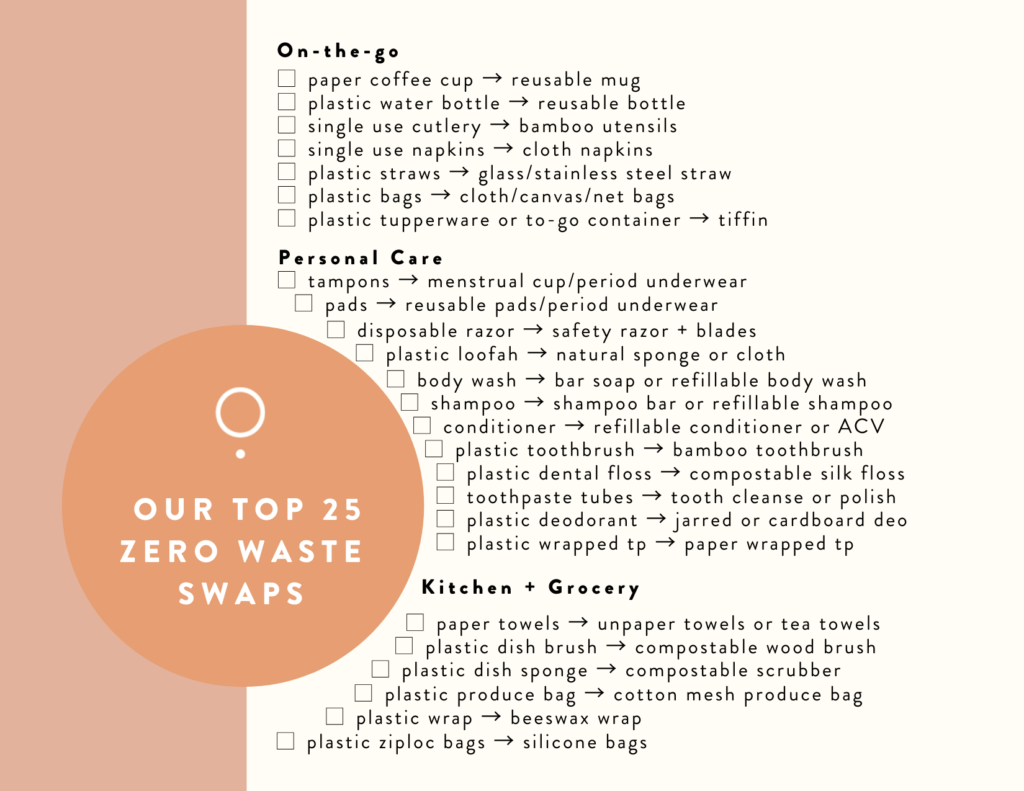
To help me, Rachel sent over her top 25 zero waste swaps to encourage reuse. She also reminded me that, “wherever you start, just remember to give yourself time to really let things become second nature.”
Rachel recommends creating an on the go Zero Waste Kit so it’s always with you when you need it. For me, there are some on this list that seem easier to swap out than others and, so, that’s where I’m going to start.
Honestly though, it wasn’t just the information I learned that’s had me thinking and talking about my conversation with Rachel since it happened. It was the inspiration she provided.
We owe it to ourselves, our planet, and the future generations to pack a reusable coffee cup.
For the love of all things holy, it’s not that hard. We can’t keep using 2.4 Earths every year. And, as Rachel puts it, each one of us can make a difference.
Simply Zero is a platform for paving the future of low impact living through education, community advocacy and conscious consumerism. To learn more, visit the website here.
Become a Quidwell Member to access a joint upcoming event with Rachel for free.
Meriden McGraw is the co-founder of Quidwell where she works to optimize the health of women. Outside of Quidwell, Meriden combines her master’s level education in mental and public health with her training in mind-body modalities to teach individuals and groups techniques for optimal wellbeing. Meriden holds various certifications in pranayama (breath techniques), positive psychology, mindfulness, and yoga. On an average day, Meriden can be found practicing yoga, drinking kombucha, dragging her husband to strength training workouts, and taking her pup for a walk.
